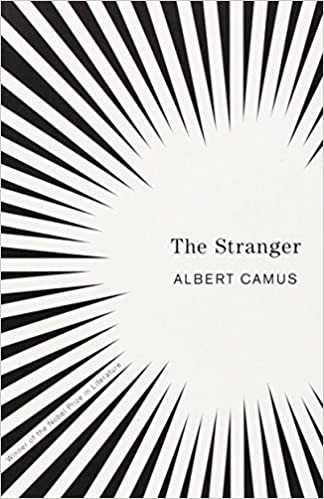Further Reading #6
The ancients & the Roys, greenwashing, escaping modernity, streaming holdouts, the singular Eric Adams, influence grift, literary rap, Lviv, opening lines & the crisis in crisis.
Thank you for supporting Fault Lines.
Following feedback from subscribers, this newsletter will now go out on a Friday retitled ‘Further Reading’. I hope you enjoy this week’s most diverting and thought-provoking readings!
Succession’s unexpected playfulness with ancient history
The HBO hit series carries off the seemingly impossible trick of being both lowbrow and highbrow at the same time.
Ancient scandals and power struggles
‘What do you know about Nero and Sporus?’ Tom asks Greg: ‘Sporus was a young slave boy, he was Nero’s favourite. You know what Nero did to him?’ Grinning uncomfortably, Greg admits his ignorance in typically off-target corporate-speak: ‘This is not IP I’m familiar with.’ ‘Well,’ explains Tom, ‘Nero pushed his wife down the stairs. Then he had Sporus castrated, and he married him instead, and he gave him a ring, and made him dress up like his dead wife.’ ‘Wow!’ exclaims Greg, ‘Plot twist – I didn’t see that coming.’ It can be of little reassurance to Greg that Tom goes on to assure him, in a tone of stifled mock-passion, that he would castrate and marry him ‘in a heartbeat.’
The limits of ESG?
IKEA and other corporates have placed sustainability at the heart of their brand identities. The reality on the ground is far murkier.
Ikea’s Race for the Last of Europe’s Old-Growth Forest
Not long after, they heard the whinge of engines; soon, two SUVs arrived. Out jumped not local police, but a horde: 15 men armed with bats and axes. The documentary crew broke for Bosutar’s car but couldn’t get the locks in time. The attackers pried the doors open, snapped the key, slashed the tires, and smashed the camera equipment. They beat Mocanu, trapped between the car and the mountainside, unconscious. They clubbed Dragolea in the face. The director dove down the nearby ravine, where he hid under the roots of a fallen tree and called the police, begging them to come with their sirens on. “I said, ‘They’re killing the journalists in the forest, and they are tracking me down,’” he recounted. “I knew cases where people had died in the forest, I saw axes around me. If someone didn’t call, we were going to die for sure.”
Another Life
Zones of temporary autonomy from the crushing burden of modernity are scattered throughout our contemporary world.
The young Italian nomads high in the Dolomites
The couple’s sheep are reared for their meat, with the animals sold to an intermediary trader. This is their only source of income. The wool has little value and is sold to the trader for a small fee, while the milk is left entirely for the lambs.
Fabio and Alice have no plans to start selling their meat directly to consumers. It would be too complicated, they say. They prefer to live in the countryside and mountains, far from crowds, and are happy to have a trader take care of the marketing and sale of their sheep.
There are 60–70 nomadic shepherds like Alice and Fabio living in Veneto, a region in north-eastern Italian stretching from the Dolomites to the Adriatic. Each family has a flock of about 1,000 sheep, keeping a certain number of males and females each year to ensure they can replenish their flock without having to buy in new animals.
High Fidelity
While the vinyl album continues to make a comeback, the less-loved CD still holds sway in pockets of the classical world.
At One of the Last Classical Music Stores, CDs Still Rock
It would, of course, be better for business if Classical Music of Spring had a website that enabled it to ship CDs around the country; this is the model adopted by most other independent niche record outlets, like jazz shop Louisiana Music Factory and British classical store Presto Music. But the logistics of setting up an online storefront for classical music are darn near terrifying.
Think about searching Amazon for a pop album you want to download. You can probably type in “Adele 30” and be done. But the classical world, with composers, soloists, conductors, ensembles, and hundreds of compositions with identical names like “Piano Sonata,” is a database programmer’s nightmare. And then there’s the sheer volume of classical recordings being released. Presto Music, for example, stocks 614 recordings of Beethoven’s Fifth Symphony.
The most interesting politician in America
Is New York’s uncategorisable new Mayor Eric Adams the future for the Democratic Party?
At age 61, he is a Democrat who became a Republican who became a Democrat again. Depending on the day, he has the look of a progressive, a moderate, or both. He wants the city, then the world, to adopt his plant-based diet, which reversed his type 2 diabetes six years ago, but he doesn’t subscribe to the term “nanny-state.” And yes, he eats fish. He served as Brooklyn’s borough president, but for at least some of that time, lived with his partner in New Jersey. He is an “introvert” (his word) who meditates almost every morning and goes out almost every night. He built his career on self-assured one-liners — “If you’re going to hang out with the boys at night, you have to get up with the men” — but beneath the joy he takes in the job, he radiates a palpable sense of evenness, never too low, never too high.
Get Rich or Lie Trying
The exploitation and grift that underpins the influencer economy.
In September 2018, the teenager photographed herself in an outfit composed of items she had been given to promote: clothes, phone case, eyelashes, and even hair, which came courtesy of a small afro hair store based in the east Midlands. In the picture, she is standing in her trademark pose. Her hips are wide and her waist is so narrow it looks like an optical illusion. Her skin is brown, her lips are full and her wavy black hair is in cornrow braids, a popular afro hairstyle. She is the picture of a confident and beautiful young black woman. The only problem is, Aga is not a black woman. She was born in Poland and would become one of the many white influencers accused of “blackfishing”.
Unrappable Words?
Hip-hop takes an increasingly literary form.
On Rap’s Linguistic Twists and Turns
“Before this point,” writes Jelani Cobb, in To the Break of Dawn, of the seven-minute B-side version of LL Cool J’s “Rock the Bells”—the version that has bells in it—“it would have been highly unlikely that a rapper would use the words connoisseur, tympanic, impresario, pestilence, plateau, subpoena, conjecture, cranium, plagiarism, metabolism, auditory, eradicate, adversary, membrane, jugular, manuscript, and virtuoso in a single song.”
The Gates of Europe
The history of Lviv holds a mirror up to Europe’s past and present.
Every time that border shifted, with every tyrant who came to power, others were told to leave: Ukrainians, Poles, Jews, Armenians. Still others perished in Ukrainian pogroms and in the Holocaust. The culture of Lviv changed with each exile, with every life lost; it is not one thing but an amalgam of many peoples, a child of human migratory paths and constantly shifting borders. So is its history, its language. As Adam Kirsch reminds us in The Odessa Review, “in the course of the 20th century, a resident of the city now known as Lviv would have lived in five different countries without ever leaving home”: the Austro-Hungarian Empire, Poland, Germany, the Soviet Union, and finally Ukraine. The list of names for the city itself is migratory: Львів, Lviv, Lvov, Lwów, Lemberg.
Mother died today
Loving books through their opening sentences.
Though at first, I found the ubiquity of death in people’s favourite fiction openers a touch disturbing, upon reflection this commonality made perfect sense. In all these sentences, death is presented alongside some mention of time; time and death, one could argue, are clarity and curiosity pushed toward a logical endpoint. Information about time offers readers a sense of clarity by indicating the temporal architecture of a story. And the mention of death—the greatest unknown—makes us curious, which generates narrative momentum.
We doth protest too much
In an age of ‘polycrisis’, “crisis” itself has ended up in crisis.
When Everything Is a Crisis, Nothing Is
The law of crisis is that crisis-talk fuels itself: Every time a choice is pitched as life-or-death, or an institution is pronounced “in crisis,” panic and partisanship and zero-sum thinking gain ground. The use of crisis mirrors your ideological commitments. If you want to raise the temperature, then breathlessly framing your cause as a crisis will do the trick. Crisis-talk is the gas pedal, not the brakes.
If you want to lower the temperature, then resist the impulse to reflexively label every problem a crisis. Keeping crisis-talk in check preserves the word’s potency for the time when the true watershed arrives.












